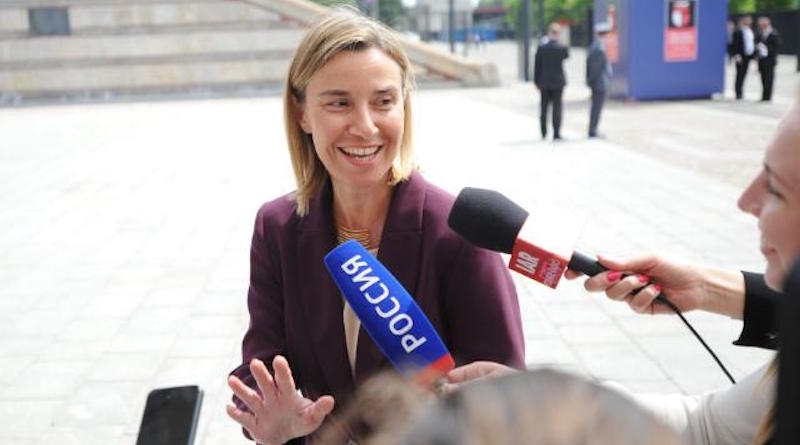Mogherini: There is a growing feeling about the need to change EU
High Representative/Vice-President Federica Mogherini in her speech at the Warsaw Summit Experts’ Forum said:
“[…] I think the importance of thinking strategically, beyond the current crisis, is so important in this moment. There are so many questions that we Europeans are having in this moment after the British referendum. What will happen to the UK? What will happen to our Union? But also that there are many things that we know very well. Many answers that we already have.
We know the threats we face. We also see the many opportunities that our world offers to us. And we see very well that we can face the threats and get the opportunities only if we invest in acting together. And this is why we worked on a Global Strategy that is also the result of a collective work that has involved many of you. Exactly because we know very well that the world and the European Union does not stop the day after the UK referendum. On the contrary, we have even more responsibility to answer to our citizens, to their needs and also to the expectations of our partners in the world.
What we hear and what I hear in particular in my daily work – always, but in these couple of weeks in particular – is a strong expectation for the European Union to be a strong partner for our friends and allies in the world, including NATO. And to be active and effective for our citizens.
I know also very well that there is a growing feeling – probably not so much in Poland, but in many other parts of Europe – about the need to change the way in which the European Union acts and works and there is also the tendency or the temptation to demolish instead of building. Well, I have the impression that we have the responsibility to build, maybe in a different way – but building on what we have already achieved.
I think that the secret of change is to focus all your energy not on fighting the old, but on building the new. And this is why I decided to go forward with the Global Strategy, even a few days after the result of the referendum, to send this message: that even in the moment when we understand that our citizens are calling for something new, there is a moment – instead of posing and taking a break – you engage even more in constructing the future work.
I understand that you would like to have a more interactive session, so I would probably leave the main issues for our conversation, for that interactive exchange, but just to say that the main key, the main acts of our Global Strategy are that of assuming the responsibilities that Europe and Europeans have, sharing them through strong partnerships and engaging in the world.
Because if there is one thing that is clear to our citizens in Europe, is that things that happen far away from home have a direct impact on our lives. And what we cannot do alone, any of our Member States – be it the smallest or the biggest: all of our Member States, we say in our Global Strategy, are medium or small size countries compared to the geography, the geopolitics and the economics of today’s world – we can do together.
So the real investment in the well-being and in the security of our people – and also the well-being and the security of our partners in the world – is actually strengthening the shared vision and the common action that we indicate in the strategy.
The strategy has also a strong focus on the approach to security. The Europeans are and have always been famous and known for our soft power. Some argue that we came from Venus – which is not bad -, still in the world of today we also need a little bit of hard power and not only the soft power. But also the hard power that Europe has can be used in combined with the soft power in a coordinated manner. In that respect the European Union has assets that no other player in the world has.
So the main focus of our strategy is how we use all our different policies, from trade to development aid, from cultural diplomacy to energy networks to the military capabilities that Europe has, to the diplomatic and mediation efforts we do. All in a joint approach to guarantee security, stability and also to get the economic opportunities that our world offers to us. Investing in strong partnerships and investing in the resilience of our partners in the world. Moving to the win-win approach, overcoming completely the zero-zero approach in foreign policy which we know is not leading anywhere.
This means in particular investing in the strengths of our neighbours. We have understood inside Europe over the last century that the illusion of gaining from ‘my neighbour’s weaknesses’ is leading us nowhere – only if we invest in our neighbours’ strengths we are also strong.
This is the philosophy of the strategy which is also the result of a collective work that I would like to recognise also because you contributed to that in a substantial way.
The Strategy also contains very concrete actions or principles on action and turning the vision into action. Obviously that would require a lot of further work and also a lot of commitment not only from the European institutions, but also from the European people and this means Member States, parliaments, but also NGOs, civil society, think tanks and our partners, because the way in which we work with our partners around the world is also part of our global role…”




